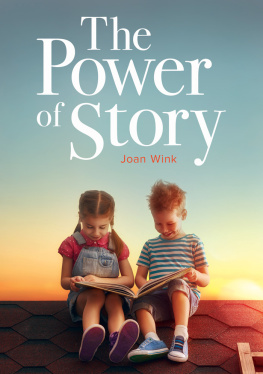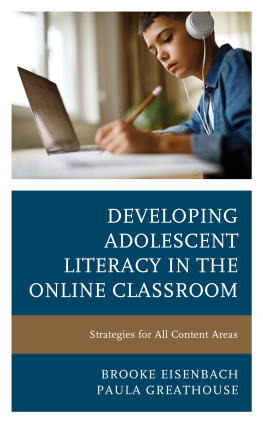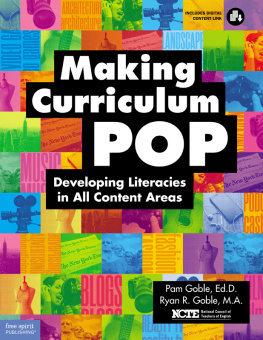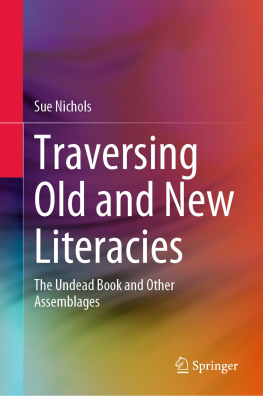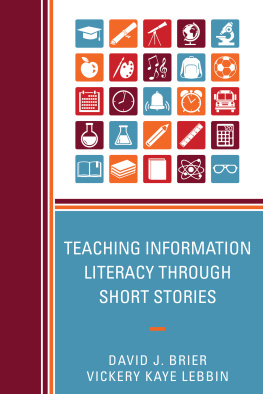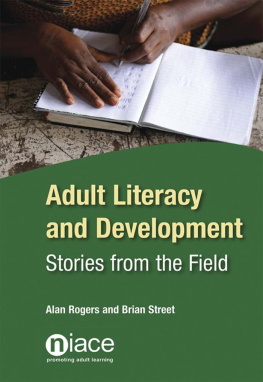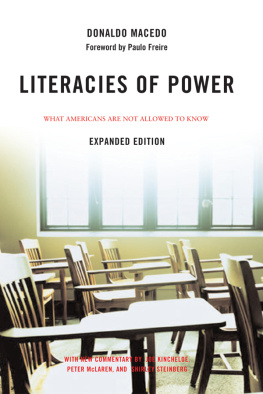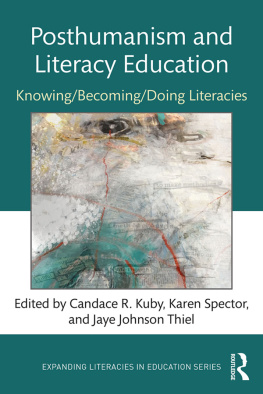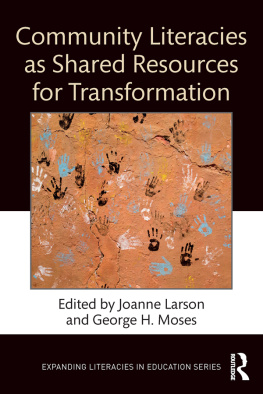THE POWER OF STORY
THE POWER OF STORY
Joan Wink

Copyright 2018 by Joan Wink
All rights reserved. No part of this publication may be reproduced, stored in a retrieval system, or transmitted, in any form or by any means, electronic, mechanical, photocopying, recording, or otherwise, except for the inclusion of brief quotations in a review, without prior permission in writing from the publisher.
Library of Congress Cataloging in Publication Control Number: 2017024833
ISBN: 978-1-4408-4396-9 (print)
978-1-4408-4397-6 (ebook)
22 21 20 19 18 1 2 3 4 5
This book is also available as an eBook.
Libraries Unlimited
An Imprint of ABC-CLIO, LLC
ABC-CLIO, LLC
130 Cremona Drive, P.O. Box 1911
Santa Barbara, California 93116-1911
www.abc-clio.com
This book is printed on acid-free paper 
Manufactured in the United States of America
Excerpts from Wink, Joan. Critical Pedagogy: Notes from the Real World, 1st ed., 1997. Reprinted by permission of Pearson Education, Inc., New York, New York.
Excerpts from Wink, Joan. Critical Pedagogy: Notes from the Real World, 3rd ed., 2005. Reprinted by permission of Pearson Education, Inc., New York, New York.
Excerpts from Wink, Joan. Critical Pedagogy: Notes from the Real World, 4th ed., 2011. Reprinted by permission of Pearson Education, Inc., New York, New York.
The publisher has done its best to make sure the instructions and/or recipes in this book are correct. However, users should apply judgment and experience when preparing recipes, especially parents and teachers working with young people. The publisher accepts no responsibility for the outcome of any recipe included in this volume and assumes no liability for, and is released by readers from, any injury or damage resulting from the strict adherence to, or deviation from, the directions and/or recipes herein. The publisher is not responsible for any readers specific health or allergy needs that may require medical supervision, nor for any adverse reactions to the recipes contained in this book. All yields are approximations.
To Teachers and Librarians
To Readers and Writers
To Betty Jay, Diane Kindt, and Mary Ann Dobras
To one of the finest families I know: Mine!
CONTENTS
To be a person is to have stories to tell.
(Isak Dinesen, Out of Africa)
PREFACE
T his is a book about the power of story. The purpose of the book is to link libraries and literacies through the power of stories, both oral and written. This book is written for librarians, teachers, and families who love literacy. Readers will discover that it is not filled with data in the form of pie charts, graphs, and scatter plots; rather, the truth of the research is grounded in authentic stories that reflect not only the interpretation of these data but also the transformative nature of literacies and libraries.
ALL WE WANT IS A STORY
Joan, you know what you are? You are a storyteller, a teacher said to me. And all we want is a story. She stopped me in my tracks with that comment, as I was mid-career and perhaps a bit too serious about my lectures and my overhead transparencies. At that time, I really did think that teachers/participants only wanted me to talk about those transparencies. However, since then I have focused on storytelling, and I consistently find that, not only do stories break down barriers among people, they also help people access complex constructs, which are reflected in those stories.
It has become clear through personal experience and from social science that simply providing people with facts, information, and research does not change their behavior; however, tell a story, which has the data embedded in the life of a person, and often people will remember and begin to change their behavior or at least consider an opposite point of view. Stories can move the human heart and head in ways that research cannot.
Literacy stories are loaded with data that are buried in the daily routines of real people. A story can make complex information accessible for all. People dont want data; they want a good story. Also, an image does not hurt. Or, as storyteller Kendall Haven (2014) states it, Picture, please! By far the most important of these images is the one (or ones) that your audience will associate with your theme (p. 146). For example, captures what you will read about in this book.
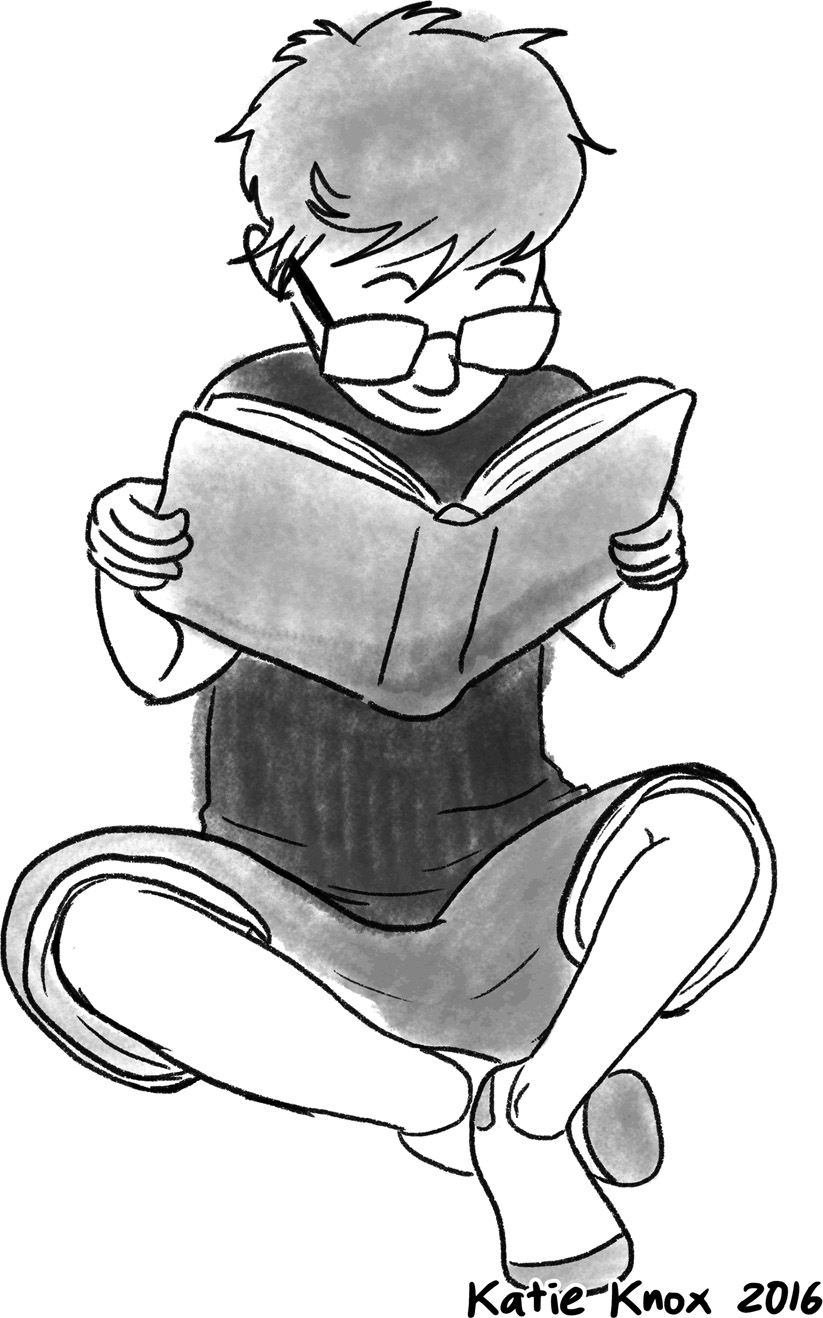
Figure P.1. The Power of Story.
Illustration by Katie Knox.
Stories bring together readers, writers, librarians, teachers, students, and families in the libraries of today and tomorrow.
MY PERSPECTIVE
Let me remove all mystery and share my perspectives, which will flow throughout the chapters. First, librarians are teachers, toothe entire school or the public library is their classroom. Therefore, throughout much of this book, I will use these three words interchangeably: teacher, school librarian, and librarian. I will try very hard not to use words like libreachers or teabrarians, but that is exactly what I mean. I find that I am in very good company in this new and emerging understanding that librarians are teachers, too. The American Association of School Librarians (AASL) has a new position statement (http://essa.aasl.org/aasl-position-statements/), which supports my understandings. In addition, as you read the following chapters, you will find that libreachers or teabrarians are some of my favorite people in the whole world.
I am a teacher, and the library is my classroom.
(Kistler, 2015)
A second perspective relates to languages, literacies, and language acquisition, all of which have been central in my career. I began as a terrified and overwhelmed Spanish teacher with five different class preparations daily (1966), but somewhere along the road, I morphed (1970s) into a nice Spanish teacher. Eventually, I started to notice that it wasnt just about some neutral use of words that fascinated me, and I began to realize that language had power. At that point, I found myself at home in the world of bilingual education, ESL, and dual-language immersion programs (1980s). I came to recognize that language was not only culturally grounded, but it was also historically, socially, and politically grounded (1990s), and I began to thrive in critical pedagogy. Now that Im near the end of my career, I am a wife, mother, grammie, rancher, professor emerita, writer, and, of course, a storyteller.
THE BIRTH OF THIS BOOK
One day, I unexpectedly received an email from a colleague whom I had known for several years.
I was just reading your blog post, which reminded me so much of my own teaching experience in rural Kansas with the farm kids who were in the eighth grade and still couldnt read and didnt want to read the basal. Suddenly, the thought hit me that you might be interested in writing something about the power of story as it relates to readingso very important in classes and school libraries.
Yes, I responded. But what story did you read?
The Benson Kids, she replied (this story is available at http://www.joanwink.com/store/critical-pedagogy-3rd-edition/critical-pedagogy-3rd-edition-the-benson-kids/).
Those kids taught me most about what I know about reading, writing, thinking, and teaching, I told her.
This book was born. I am so grateful for Sharon Coatney and colleagues at Libraries Unlimited, ABC-CLIO. Sharon Coatney, my acquisition editor, thank you for saving me from myself on several occasions. Even though you have a demanding and complex life, you consistently found time to respond promptly and thoroughly. I very much appreciate your constant support. Emma Bailey, production editor, you also came through with details when I needed them most. This book would never have been written without some background work by Joyce Armstrong Carroll and Eddie Wilson of Abydos Learning, as they were instrumental in bringing Sharon and me together and providing time for us to tell each other stories. Thank you, Joyce and Eddie. Blanche Woolls of Libraries Unlimited, I believe you were supporting Sharon and me from the beginning, too. Thank you.
Next page
